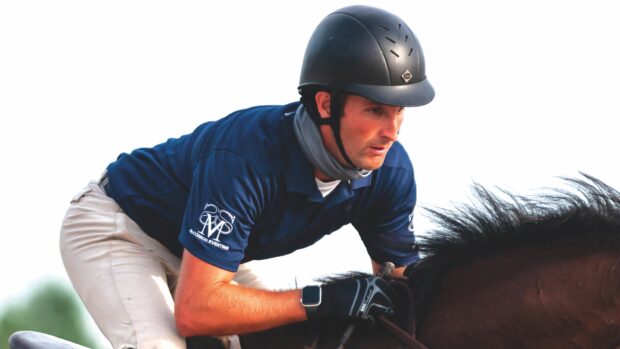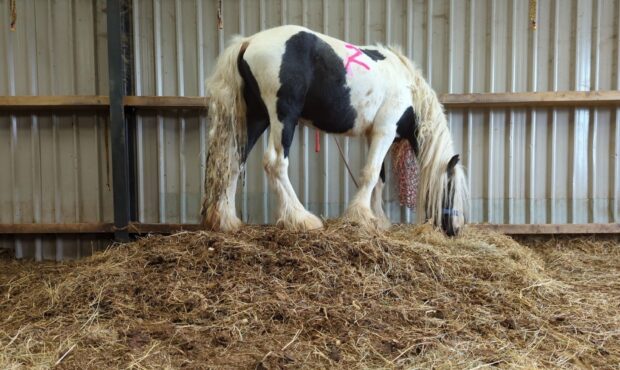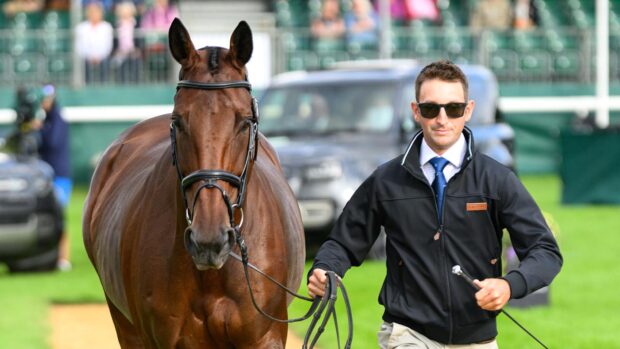A voluntary organisation set up to rescue abandoned horses says if it cannot rehome those already in its care, it may have to think twice about saving any more in future.
Berkshire-based SAFE (Saving Abandoned Fly-Grazing Equines) was set up in winter 2014/2015 after 38 horses and ponies were left in a field in Binfield.
Last year new homes were found for 22 of the rescued horses. But so far this year, only three have been rehomed.
“We are at capacity for space, volunteers’ time and funds. If we cannot decrease the number of horses in our care, we cannot take more in,” said Vicki, a SAFE volunteer.
“And long-term, if we can’t re-home, then we have to question if we can even consider rescuing in the first place.”
The nine horses ready to go range from two young Shetlands to a 15.2hh mare in her mid teens called Eve.
All the horses are jabbed, wormed, microchipped, passported and have been obtained legally.

Henry (centre) was abandoned at three months old
“We’re looking for experienced, good homes, especially for the youngsters. We match the horse with the owner’s requirements,” said Vicki.
New owners are asked for a minimum £250 donation.
SAFE is sending out letters to more 100 equestrian businesses in the Berkshire/Surrey area calling for help.
“With the winter coming up and inevitable increase in abandoned horses we want to be able free up space, time and funds for new arrivals,” said Vicki.
She said because much of the open land in Berkshire is owned by developers with no physical presence on site, it is “a prime target for fly grazing and abandonment”.
A petition launched in January calling on the government to address the UK horses crisis had 11,455 signatures by the time it closed in July.
The government responded by saying current welfare laws are enough to deal with the fly-grazing problem.
Related articles:
- Dead foal prompts thousands to sign petition to government
- Rescue filly abandoned with ‘horrific’ burns wins at Equifest
- Lice-ridden pony found ‘eaten alive’ by maggots *warning: graphic images*
But SAFE says the laws, particularly that on microchipping, are not being enforced.
Defra told SAFE the enforcement of the laws “is the responsibility of local authorities” so it is setting up meetings with local councils to impress on them the importance of enforcing Defra policy which says horses should be microchipped.
Only two of the horses rescued so far by SAFE have been chipped.
For more information on the chaity, or re-homing, click here.



